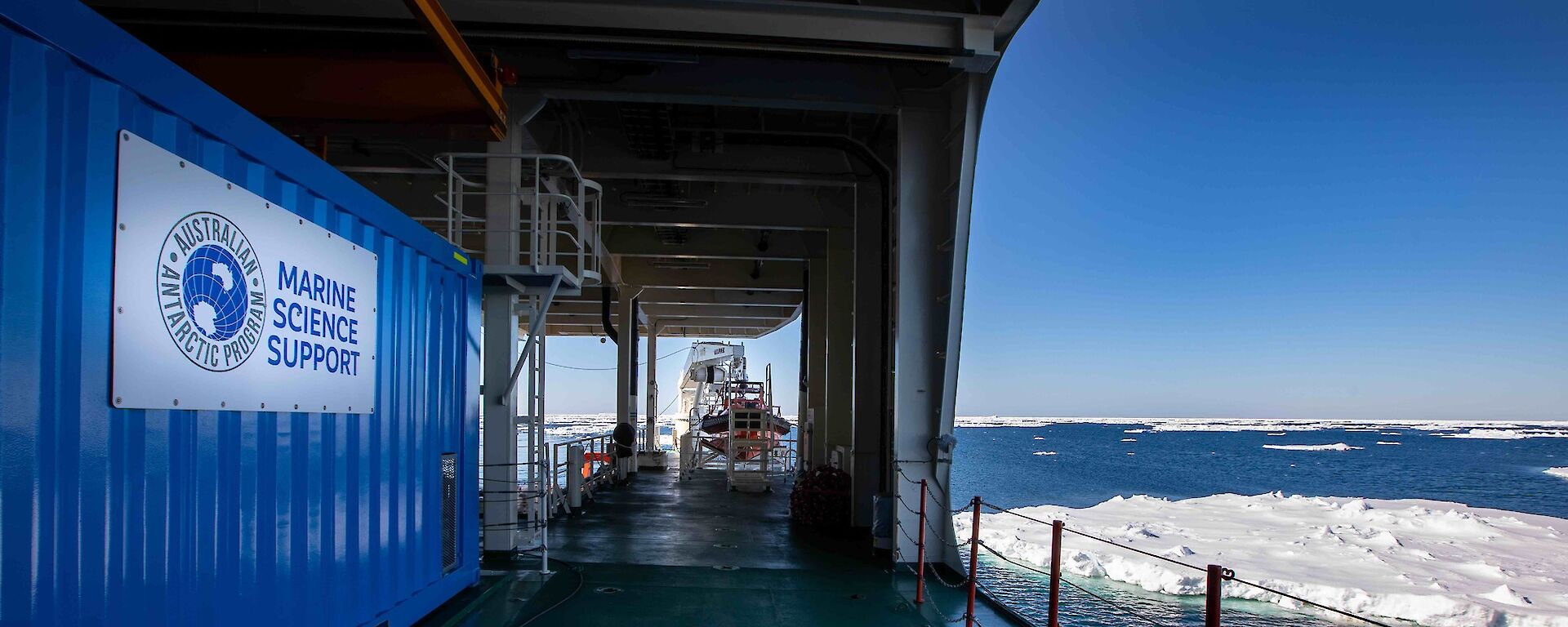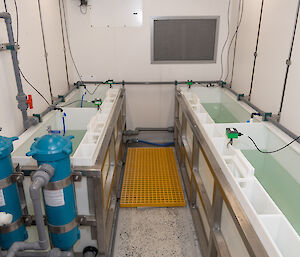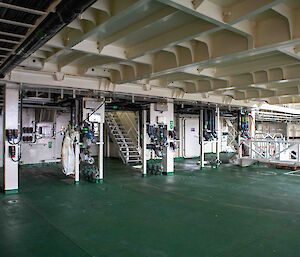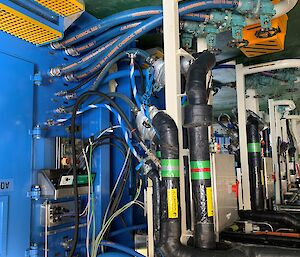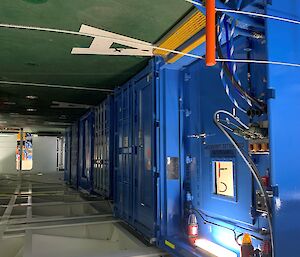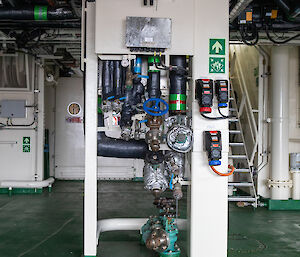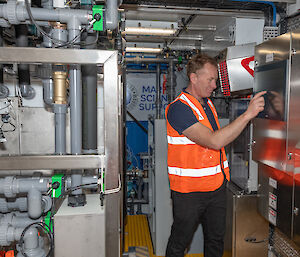The science modules form part of a larger containerised capability on the ship, which has space for up to 15 laboratories and 9 science support containers, for storage and mechanical equipment. They provide added flexibility and future-proofing, alongside fixed laboratory spaces - wet and dry laboratories, an air chemistry space, a 'wet well', and a meteorological laboratory.
The six modules include a general laboratory, a temperature controlled laboratory for temperature-sensitive experiments, an analytical laboratory for the use of hydrogen, two aquaria for krill and fragile marine organisms (see video below), and a container for the aquaria mechanical equipment.
The modules have been designed so that they can be set up for different science projects before they’re loaded on to the ship, and they can be plugged directly into the ship’s power, water, air and alarm systems via their standard 'service interface'. This will save time and improve safety during the busy turnaround time between voyages.
The modules are built to a safety standard used for laboratories and special facilities in the offshore drilling industry. Safety features include a fully sealed steel shell and other non-combustible materials, such as rock wool insulation, designed to resist fire from inside and out. Their gas and fire detection systems will also shut down power automatically and alarm the ship.
Science Container Interfaces
RSV Nuyina has 24 serviced positions for science containers throughout the ship. 15 slots are serviced for containerised laboratories equivalent to wet laboratories; 9 slots are serviced for science support modules.
Science container positions include:
- Aft Science Decks 4 & 5: 4 positions each deck; all with wet services
- Hold 2 Deck 4: 5 positions; wet services
- Hold 2 Deck 3: 5 positions; support services
- Deck 9: 4 positions; 2 wet services + 2 support services
- Hold 1 hatch covers: 2 positions; support services

